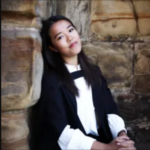Today we have special guest Claudia Mak joining us to answer questions about college applications, personal statements, resumes, and more. She spends her days as a freelance editor helping college students take their writing to the next level, and she’s here today to give you some tips on improving your college applications. If you would like help on your next essay or personal statement, Claudia is available for hire.
Can you introduce yourself and how you help college students with your work?
Hello! My name is Claudia and I am a freelance editor. Students who are looking to apply to any college/university program seek my help with their college application essays, recommendation letters, and resumes. I do not write anything from scratch; rather, I work to refine the language of their drafts and check for any gaps in the content. As many applicants are not from English-speaking countries, this has allowed those wanting to pursue higher education in the US/UK to overcome the language barrier in their applications. I work with applications for undergraduate, masters or PhD programs and just about any subject. From the revered MBA, Paleontology, Data Analytics to Neurophilosophy – you name it, I’ve probably done it!
What’s your educational and professional background? How did you find yourself working as a proofreader/editor?
I studied Comparative Literature and English at the University of St Andrews in Scotland. It was an exceptional learning experience. Writing lots of essays, helping my lecturer with her monographs, and trying to decipher a lot of interesting yet complex writing was how I shaped my proofreading and copyediting skills. I was also an Editor of a fashion magazine on campus and an Editorial Intern at Ocula Magazine, which is about contemporary art. After graduating, I had to find a way to make a few bucks while I searched for jobs. Before I realized it, I was becoming busier and busier with the freelance proofreading and editing jobs that were thrown my way. In addition to being very stimulating, the jobs were much more enjoyable that writing cover letters for myself and waiting endlessly to hear back from HR. Hence, I took a leap of faith and jumped into it full-time.
Can you describe the role and importance a personal statement plays in one’s college application?
I would say that a personal statement is where your ‘authentic’ self can shine, so that colleges can see if you are a good fit for them. Everyone is much more than their credentials on paper. For undergraduate applications, your test scores or GPA aren’t the only determining factors. Other things such as extracurriculars, work experiences, or even personal issues can reveal your personality and/or values. Colleges want the right fit for their unique school culture, which is why they look towards your essay(s) to assess this.
For most masters and PhD applications, much less fluff is necessary, as the essays are used to assess whether the applicant can contribute to the research the department is conducting. Its purpose is much more technical.
What makes for a great personal statement? What other things are college admissions looking for in a statement?
First of all, if there is a question or prompt, address it directly! This is not the time to assume or expect anything. Because most essays only get one shot at being read, making sure the answer is relevant to the question or prompt is key. For most cases, this means not twisting the meaning of the question/prompt to fit your answer. However, there are some exceptions – the first ones that comes to mind are Chicago or Columbia applications. Their questions allow much more creative leeway.
Secondly, it is not to magnify a resume. The best personal statements are forward-thinking and a blend of descriptive and reflective. The AdCom wants to see how the education received will be put to practice. They also want to see the thought process behind each act/achievement – not only what had happened, but also why, what you thought, what others thought, what you realized from it, what it prompted you to do etc.
Thirdly, it is where applicants should be themselves. I suggest reflecting on each experience or opportunity and being honest about the outcome or takeaway. There is no need to hide a failure or mistake, particularly if the question is asking about one. It is always good to remember that the AdCom is made up of real people. People respond well to sincerity and integrity. They can tell if you are bluffing, or if you are making a point for the sake of making a point. Being truthful and thoughtful goes a long way – not only when applying to colleges, but in any situation in life. Applying to colleges/university is a learning process in itself.
What are some common mistakes you see students make when you review their statements?
Not answering the question, making it an extended version of their resume, and not being genuine or sincere.
Other than those, apart from poor grammar, I see many students trying to overcomplicate their syntax. It does not impress the reader; it only makes the essay a chore to read.
Particularly for short essays, many conclusions I have seen do not match the content. The essay could have been very good, but with an irrelevant conclusion, the entire essay falls apart. Making sure that the conclusion responds to the content is very important.
Do you have any other advice for students to get accepted onto the campus of their dreams?
The daunting applications mimic many other forms of relationships. Believe it or not, compatibility is key. I loved my time at university, but I also know people who hated their experience, even if they were thriving academically. Do your research, be yourself, manage your expectations. Cliché, but if you do these things, you will end up where you need to be. ☺
Share on Facebook
